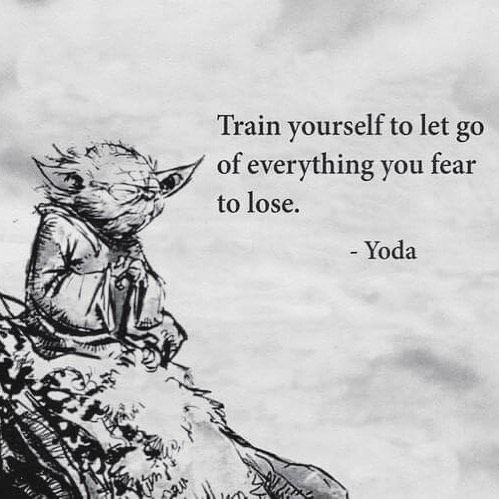Dukkha is the first of the Four Noble Truths in Buddhism and means anything that is unsatisfactory or the stress we can experience when something is unfolding in life that is undesirable. We understand that life will have suffering, the wheel of life itself outlines this suffering in the experience of birth, ageing, illness and dying.
On the surface, most of us live a life where we are moving away from things that may bring us pain, and moving towards things that bring us joy. But is this possible? Are we really able to predict that which we will enjoy in the future, and when we arrive in this future, will we still feel the same way about the very thing we believed would bring us happiness?
Maybe we can first look at the difference between liking something and wanting something. Liking usually describes how something makes us feel. For example, I like this chocolate as it is making me feel a bit better than I felt before. Wanting however is different. Wanting something is a future prediction, a prediction that when we get the thing we want, we believe it will influence our well being and make us feel better than before. This is where we start to fall into the trap of miswanting. The experience of miswanting is to wrongly assume that we will like what we want when we eventually get it.
We can all relate to sometimes getting what we want but end up feeling unhappy about it rather than the pleasure we believed it would bring us. For example, getting to a restaurant feeling famished. We scan through the menu, our stomach growling, and we anticipate how amazing the food is going to be once it is set down in front of us. We order the tofu stir fry, our taste buds already watering at the very thought of it being cooked and served. We wait, chatting to our dinner companion, wishing the food would hurry up. The food arrives and doesn’t look the way we had imagined. We take a bite. It doesn’t taste how we had hoped. We are still willing to eat this dish, as we are hungry and don’t want to look bad by asking if we can order something else. But now the dish is spoiled by our disappointment of it, even though 10mins ago we were in anticipation of how amazing this food would be once it was in front of us.
It would seem that a lot of our miswanting is of this variety. Getting exactly what it is we wanted, but then realising that the very thing isn’t bringing us the satisfaction that we had envisioned, and disappointed that something we had our heart set on is now just another thing that we don’t want. If wanting is a prediction of liking something, then just like all predictions, we can be off the mark and our predictions can mostly turn out to be false assumptions.
So the question is: how is it possible to get what we want, and yet not like what we get?
One of the main problems with our wanting is that it is usually influenced by feelings we are having in this moment. Maybe we are feeling elated and believe it is because we have just seen that our favourite artist is playing in town next week. It is a sold out show, but we are determined to get a ticket. We purchase a higher priced ticket and attend the show, but for some reason, that feeling of elation that we felt when purchasing the ticket and visualising ourselves at the gig, is not the actual feeling we have when we are there. You could say that we have mixed up our feeling of elation with the wrong event, taken action, and been sorely disappointed in the outcome. Feelings never reveal where they are actually coming from, so it would be an easy mistake to assign them to the wrong experiences.
Another example about miswanting is food shopping. When we do our groceries, most of us tend to create a list. This list is one of what we will want in the future, whether snack food, or ingredients to make a dish. When it is time to do our shopping, some of our choices around what to buy will be influenced by our hunger at that time. So if you had a full meal before shopping, it is likely you will easily be able to stay on track with your list and only buy what is on there. If you go shopping and haven’t eaten, other products will grab your attention, simply because of your want in that moment. However, when you get home and put everything away and have something to eat, you may look back at your shopping and realise that you over spent on products that you either don’t want or need anymore. A
perfect example of miswanting. Believing that what we want in one moment, is going to fulfill us when we have it .
The situations above all have one thing in common: we tend to overestimate the duration of our emotional reactions to future events. We enjoy eating the whole tub of ice cream now, it brings us pleasure and satisfaction, but that satisfaction is short lived, and we may quickly feel regretful of indulging, whether we have a stomach ache after or realise it will take 45mins of running on a treadmill to burn all the calories we have just consumed.
Pleasant experiences are pleasant, there is no denying this. Yet they fail to give us lasting satisfaction. As soon as one pleasant experience is finishing, we move on to wanting the next one, and so the cycle of Dukkha is well and truly in motion. We understand that all things are forever changing, that no experience will last forever, whether it is one of despondency or elation. Usually the intellect understands this, but still our emotional world is what becomes are achilles heel, and moves us towards experiences designed to change how we feel, as a temporary fix.
Realising that all is impermanent and nothing whatsoever should be craved, the Buddha was able to overcome dukkha by letting go experiences and opinions and thoughts of ‘self’ and ‘world’
So how then can us mere mortals break the cycle of Dukkha? Below are 3 steps to act as a guidance when we find ourselves in the wanting/craving mode……
- Accept that dissatisfaction and unhappiness are inevitable: the better we can get at accepting these moments that are unfilling, the better we become at realising that ‘this too shall pass’
- Let go of the story: drop the reasons for why things are happening. One of the main reasons we do this is to feel a sense of control. Instead, accept things as they are without your opinion or explanation
- Practice gratitude for the present moment: a sure way to remain in the present moment, without the belief that something else would make this moment even better
Below is a guided meditation for Svadhisthana Chakra, our gateway to our pleasures, addictions and creativity. Meditating on Svadhisthana is a powerful antidote to our cravings resulting in our dissatisfactions.
Free Meditation on Svadhisthana Chakra







Read 0 comments and reply